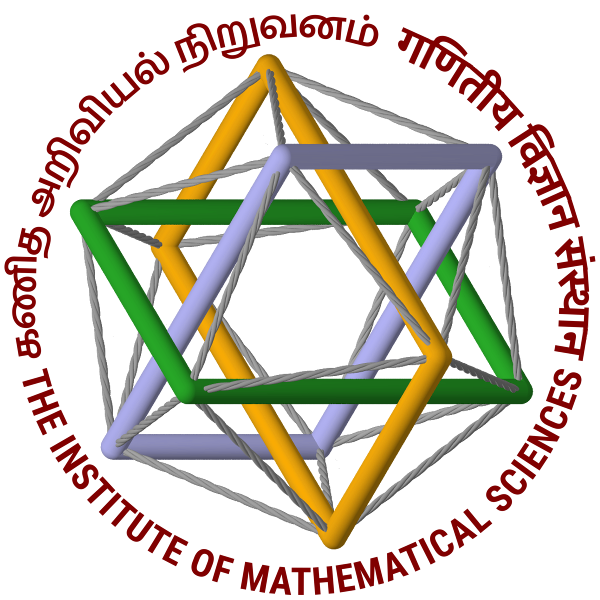A national institute for research in the theoretical sciences
Upcoming Events
Oct 29
11:30-12:30
11:30-12:30
Hareesh J | IMSc Chennai
Biology Seminar | Alladi Ramakrishnan Hall
Oct 29
14:00-15:00
14:00-15:00
Pratik Nandy | Yukawa Institute for Theoretical Physics, Kyoto University and RIKEN iTHEMS
Physics Seminar | Alladi Ramakrishnan Hall
Oct 29
15:30-17:00
15:30-17:00
Saket+ | IMSc
Parameterized Complexity Seminar
TCS Seminar | E C G Sudarshan Hall
Oct 29
17:00-18:00
17:00-18:00
Harshit Yadav | University of Alberta
Mathematics Seminar | IMSc Webinar
Oct 29
17:00-18:00
17:00-18:00
Harshit Yadav | University of Alberta
Mathematics Seminar | IMSc Webinar





